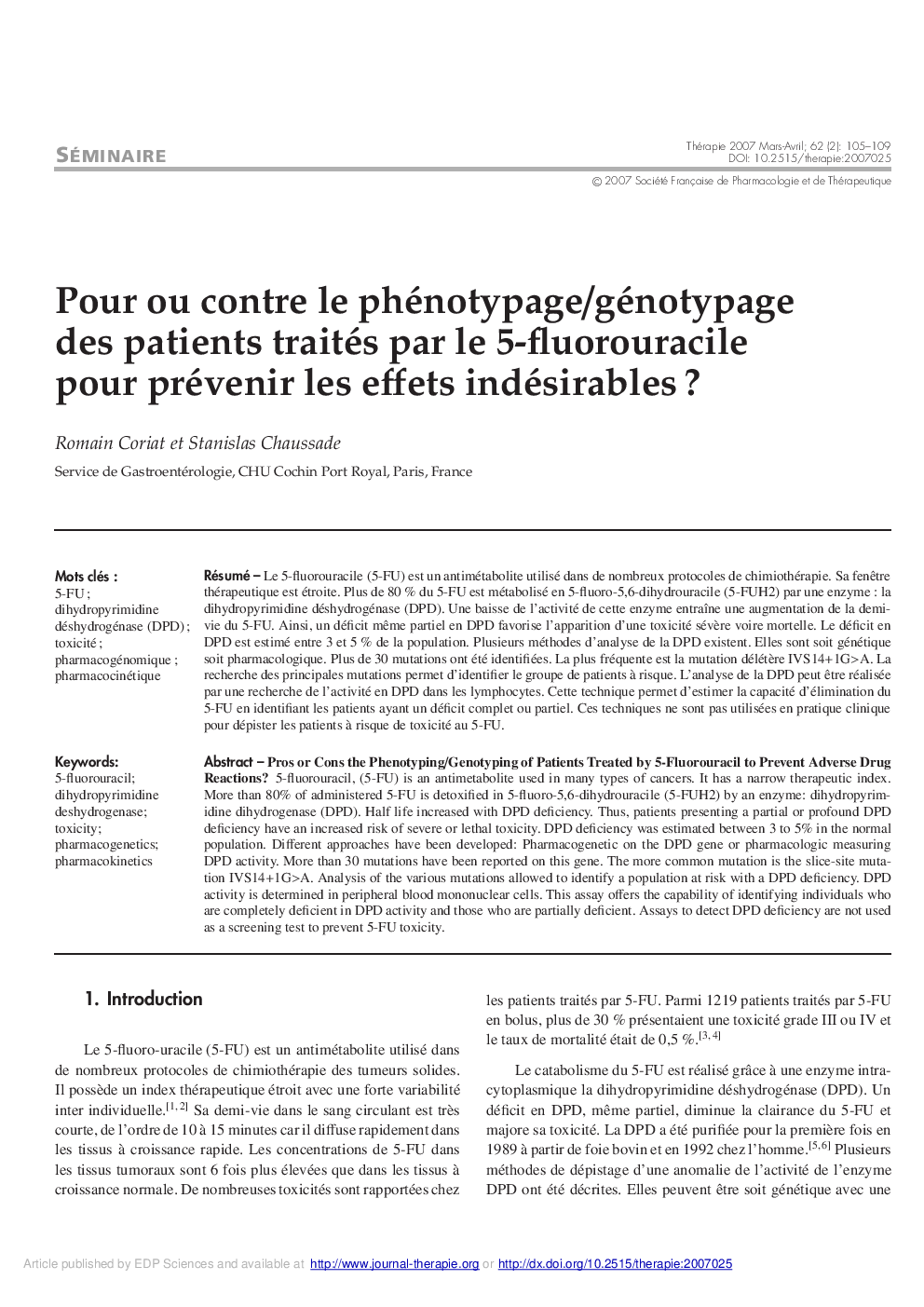| Article ID | Journal | Published Year | Pages | File Type |
|---|---|---|---|---|
| 2579620 | Thérapie | 2007 | 5 Pages |
Abstract
5-fluorouracil, (5-FU) is an antimetabolite used in many types of cancers. It has a narrow therapeutic index. More than 80% of administered 5-FU is detoxified in 5-fluoro-5,6-dihydrouracile (5-FUH2) by an enzyme: dihydropyrimidine dihydrogenase (DPD). Half life increased with DPD deficiency. Thus, patients presenting a partial or profound DPD deficiency have an increased risk of severe or lethal toxicity. DPD deficiency was estimated between 3 to 5% in the normal population. Different approaches have been developed: Pharmacogenetic on the DPD gene or pharmacologic measuring DPD activity. More than 30 mutations have been reported on this gene. The more common mutation is the slice-site mutation IVS14Â +Â 1GÂ >Â A. Analysis of the various mutations allowed to identify a population at risk with a DPD deficiency. DPD activity is determined in peripheral blood mononuclear cells. This assay offers the capability of identifying individuals who are completely deficient in DPD activity and those who are partially deficient. Assays to detect DPD deficiency are not used as a screening test to prevent 5-FU toxicity.
Keywords
Related Topics
Health Sciences
Pharmacology, Toxicology and Pharmaceutical Science
Pharmacology, Toxicology and Pharmaceutics (General)
Authors
Romain Coriat, Stanislas Chaussade,
